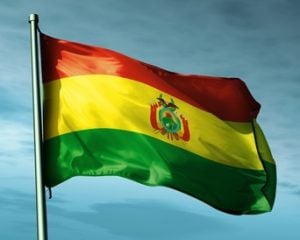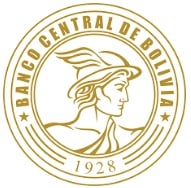Latest news about Bitcoin and all cryptocurrencies. Your daily crypto news habit.

The Bolivian government recently arrested 60 people over a pyramid scheme that claims to invest in bitcoin. However, the focus was on the scheme and not on bitcoin itself, even though the government banned the digital currency back in 2014.
Also read: Use of Bitcoin in Ecuador Continues to Grow Despite Government Ban
60 Arrested Relating to ‘Pay Diamond-Bitcoin’
Bolivia’s Autoridad de Supervisión del Sistema Financiero (ASFI) on May 19 announced that 60 people had been arrested for promoting “virtual currency investments”. The country’s federal banking, finance, and securities regulator states (loosely translated):
The arrest of 60 people, who were presumably conducting training related to the investment in virtual currencies, reminded the population that this activity is prohibited in the whole national territory.
The government’s announcement did not specify whether these activities were related to bitcoin. However, El Deber reported that they were related to a known pyramid scheme called “Pay Diamond-Bitcoin,” which the authorities have kept an eye on for some time.
Pay Diamond-Bitcoin is similar to a larger scheme called Pay Diamond which is also being investigated by the Bolivian government. Pay Diamond, believed to have swindled some 200,000 people, claims to buy, process and sell diamonds to the gemstone industry.
Arrests Focused on Pyramid Schemes
 The arrests were made by Bolivia’s Crime Fighting Special Forces (FELCC), and pamphlets used in the training were confiscated. According to ASFI Executive General Directorate, Lenny Valdivia Bautista, the meeting took place at the Cine Center of Santa Cruz de la Sierra.
The arrests were made by Bolivia’s Crime Fighting Special Forces (FELCC), and pamphlets used in the training were confiscated. According to ASFI Executive General Directorate, Lenny Valdivia Bautista, the meeting took place at the Cine Center of Santa Cruz de la Sierra.
They were “carrying out training activities related to the investment of money with characteristics of multilevel activities,” she detailed. “This type of activity is related to pyramid schemes” with the sole purpose of appropriating money and the savings of the Bolivians, the announcement warns. Valdivia also urged Bolivians to protect their savings and their families’ well-being by reporting these “unlawful activities” to ASFI or the FELCC.
The announcement also reveals that:
To date, ASFI is in the process of drawing up a draft bill that will allow the inclusion of Pyramid scams in the Penal Code.
Another Pyramid Scheme: ‘Bitcoin Cash’
 Another recent bust by the Bolivian government concerns a separate pyramid scheme and scam called “Bitcoin Cash.” This scheme, surfaced in April, is similar to Pay Diamond-Bitcoin.
Another recent bust by the Bolivian government concerns a separate pyramid scheme and scam called “Bitcoin Cash.” This scheme, surfaced in April, is similar to Pay Diamond-Bitcoin.
The company promised to make investments in cryptocurrencies, mining abroad, and buying and selling bitcoins, La Razon Digital reported. However, once the scheme’s administrators got money from their victims, their website failed and the company no longer responds to queries, one victim told the publication.
Last week, scam victims looking for refunds of their investments from Bitcoin Cash attacked the company’s office in desperation, taking matters into their own hands. The angry mob reportedly burst into the office, took out their furniture, and set it on fire.
 Angry victims burned Bitcoin Cash’s furniture (Photo\eju.tv)
Angry victims burned Bitcoin Cash’s furniture (Photo\eju.tv)
Bitcoin’s Status in Bolivia
 In June 2014, Bolivia’s central bank officially banned the use of bitcoin and other cryptocurrencies in the country. The bank states at the time that “It is illegal to use any kind of currency that is not issued or controlled by a government or an authorized entity.” Public Resolution Number 044/2014, dated May 6, 2014, prohibits the use of any coins not issued or regulated in the country. Among them are “bitcoin, namecoin, tonal bitcoin, ixcoin, devcoin, freicoin, 10coin, liquidcoin, peercoin, quark, primecoin, feathercoin and others that do not belong to any country or economic zone,” the regulation states.
In June 2014, Bolivia’s central bank officially banned the use of bitcoin and other cryptocurrencies in the country. The bank states at the time that “It is illegal to use any kind of currency that is not issued or controlled by a government or an authorized entity.” Public Resolution Number 044/2014, dated May 6, 2014, prohibits the use of any coins not issued or regulated in the country. Among them are “bitcoin, namecoin, tonal bitcoin, ixcoin, devcoin, freicoin, 10coin, liquidcoin, peercoin, quark, primecoin, feathercoin and others that do not belong to any country or economic zone,” the regulation states.
Valdivia reiterated this status in the recent announcement, adding that “it is important to urge the population to denounce these cases in which people try to take advantage of people’s savings and saving families.”
 She indicated that ASFI, in coordination with “competent judicial authorities,” will enforce the law on any businesses nationwide that use virtual currencies or pyramid schemes.
She indicated that ASFI, in coordination with “competent judicial authorities,” will enforce the law on any businesses nationwide that use virtual currencies or pyramid schemes.
Bolivia was not the only country to ban bitcoin and other cryptocurrencies in 2014. Nearby Ecuador made a similar move. Bitcoin.com recently reported on how the use of bitcoin continues to grow there despite the ban.
What do you think about Bolivia’s enforcement of bitcoin’s legal status? Let us know in the comments section below.
Images courtesy of Shutterstock, eju.tv, allevents.in, Central Bank of Bolivia
Need to calculate your bitcoin holdings? Check our tools section.
The post Bolivia’s Government Arrests 60 People Over a Pyramid Scheme – Not Bitcoin appeared first on Bitcoin News.
Disclaimer
The views and opinions expressed in this article are solely those of the authors and do not reflect the views of Bitcoin Insider. Every investment and trading move involves risk - this is especially true for cryptocurrencies given their volatility. We strongly advise our readers to conduct their own research when making a decision.